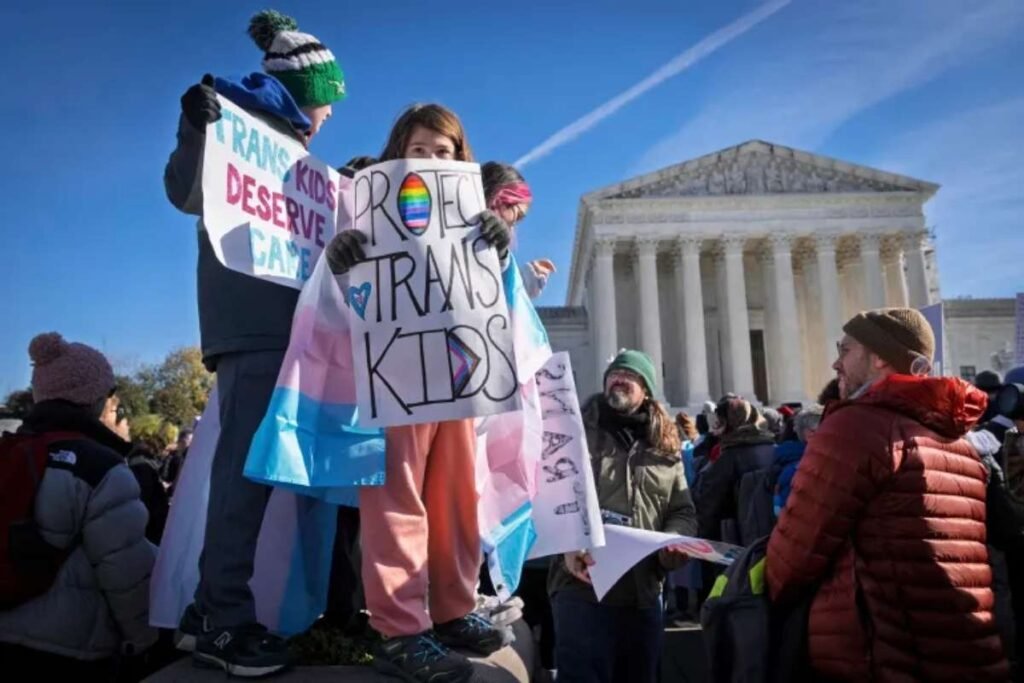Supreme Court Ruling Sparks National Debate
In a landmark decision on Wednesday, the U.S. Supreme Court upheld Tennessee’s ban on gender-affirming care for transgender minors, dealing a significant blow to transgender rights in the United States. The 6-3 ruling supported the state’s law that prohibits puberty blockers and hormone treatments for individuals under 18, citing that it does not violate the Constitution’s equal protection clause. Chief Justice John Roberts, writing for the conservative majority, emphasized that the Court is not positioned to resolve deep scientific or ethical disagreements. “The Equal Protection Clause does not resolve these disagreements,” he stated.
Justice Sonia Sotomayor, dissenting with the court’s three liberal justices, accused the majority of turning away from judicial responsibility. She warned that the decision leaves transgender youth and their families at the mercy of political tides, calling it “a retreat from meaningful judicial review.” Her dissent also pointed out that the law restricts parents’ ability to make healthcare decisions for their children, a concern shared by many families and pediatric advocates.
Political, Medical, and Legal Repercussions Widen
The Court’s decision reflects growing political and legislative momentum in Republican-led states seeking to restrict transgender rights. Tennessee is one of 27 states with similar laws limiting or banning gender-affirming care for youth. The Trump administration has further pushed this agenda, including attempting to ban transgender athletes in girls’ sports and eliminating federal funding for gender-affirming care for those under 19. Some healthcare providers, like Penn Medicine in Philadelphia, have already ceased certain treatments in response to political pressure.
Justice Amy Coney Barrett joined the majority but highlighted in her concurring opinion that courts should not apply heightened scrutiny to laws affecting transgender people. Barrett argued that legislatures deserve the flexibility to regulate evolving medical practices. Meanwhile, the American Academy of Pediatrics reiterated its support for gender-affirming care calling for healthcare decisions to remain between doctors, patients, and families without political interference.
While the Supreme Court’s 2020 ruling protected LGBTQ employees from workplace discrimination, Wednesday’s decision marks a departure from that precedent. Critics note that the same sex-based logic used in the employment ruling was not extended to transgender minors seeking healthcare. Justice Sotomayor likened the court’s reasoning to the now-defunct laws banning interracial marriage—an argument Roberts firmly rejected.
Mixed Reactions Reflect Deep Division Across the U.S.
The ruling has drawn both celebration and condemnation across the nation. Tennessee Attorney General Jonathan Skrmetti called the outcome a “Landmark VICTORY” for protecting children, while transgender advocates mourned the setback. Chase Strangio, attorney for the ACLU, labeled the verdict “a devastating loss” for transgender families and constitutional rights. Transgender individuals like Mo Jenkins, who began hormone therapy as a teen, expressed disappointment but remained defiant: “Trans people are not going to disappear,” she said.
The Williams Institute estimates there are around 300,000 transgender teens and 1.3 million transgender adults in the U.S. As more states push similar bans, Wednesday’s ruling could embolden further restrictions. While the Biden administration initially fought Tennessee’s law, a shift in executive policy under Trump added complexity to the legal battle.
With emotions running high on both sides, the decision is likely to intensify the ongoing national conversation on transgender rights, medical freedom, and judicial oversight in America.









